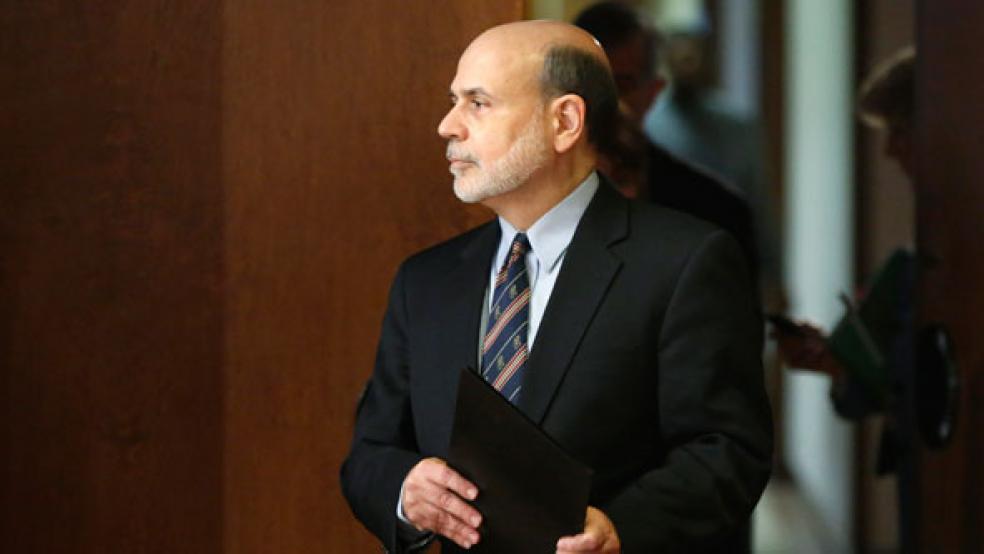Federal Reserve Chairman Ben Bernanke painted an upbeat picture on Saturday for the potential of innovation to lift living standards, delivering a sweeping look at the last 100 years that included memories of his 1963 South Carolina home.

Bernanke made no reference to monetary policy or the immediate outlook for the U.S. economy in prepared remarks to graduates of Bard College at Simon's Rock, Massachusetts.
But the die-hard baseball fan did manage to work in a reference to one of the sport's greats. "Is it true, then, as baseball player Yogi Berra said, that the future ain't what it used to be?," the chairman said, noting the existence of serious skepticism that leaps in computers and other information technology would yield the same dramatic boost to growth and living standards as previous episodes of industrial revolution.
"Nobody really knows; as Berra also astutely observed, it's tough to make predictions, especially about the future. But there are some good arguments on the other side of this debate."
Bernanke delivers testimony on the U.S. economy on Wednesday before the congressional Joint Economic Committee. His words will be parsed for any hint that he favors tapering Fed bond purchases, currently running at an $85 billion monthly pace. But recent U.S. economic data has been mixed, and economists polled by Reuters continue to expect the bond buying to continue until later this year, if not into early 2014.
RELATED: Fed Faces Major Test Over Inflation Rate
Bernanke did not tip his hand during his comments to graduates, but he did offer some rare insights into his childhood home in Dillon, South Carolina to illustrate how life has not changed all that much in the last 50 years. "We had a dishwasher, a washing machine, and a dryer. My family owned a comfortable car with air conditioning and a radio, and the experience of commercial flight was much like today but without the long security lines," he recalled.
There was no internet, but there was a color television "although, I must acknowledge, the colors were garish and there were many fewer channels to choose from."
After pointing out that the so-called IT revolution had not been as transformative as all that, Bernanke then went on to outline several areas where technology may only have scratched the surface in exploiting the potential for change. He argued that IT and biotechnology have tremendous scope to improve healthcare - which absorbs a considerable amount of U.S. household income and where costs are projected to rise - as well as the potential for the development of cleaner energy.
"As trade and globalization increase the size of the potential market for new products, the possible economic rewards for being first with an innovative product or process are growing rapidly," he said. "In short, both humanity's capacity to innovate and the incentives to innovate are greater today than at any other time in history."
Reporting by Alister Bull of Reuters.

